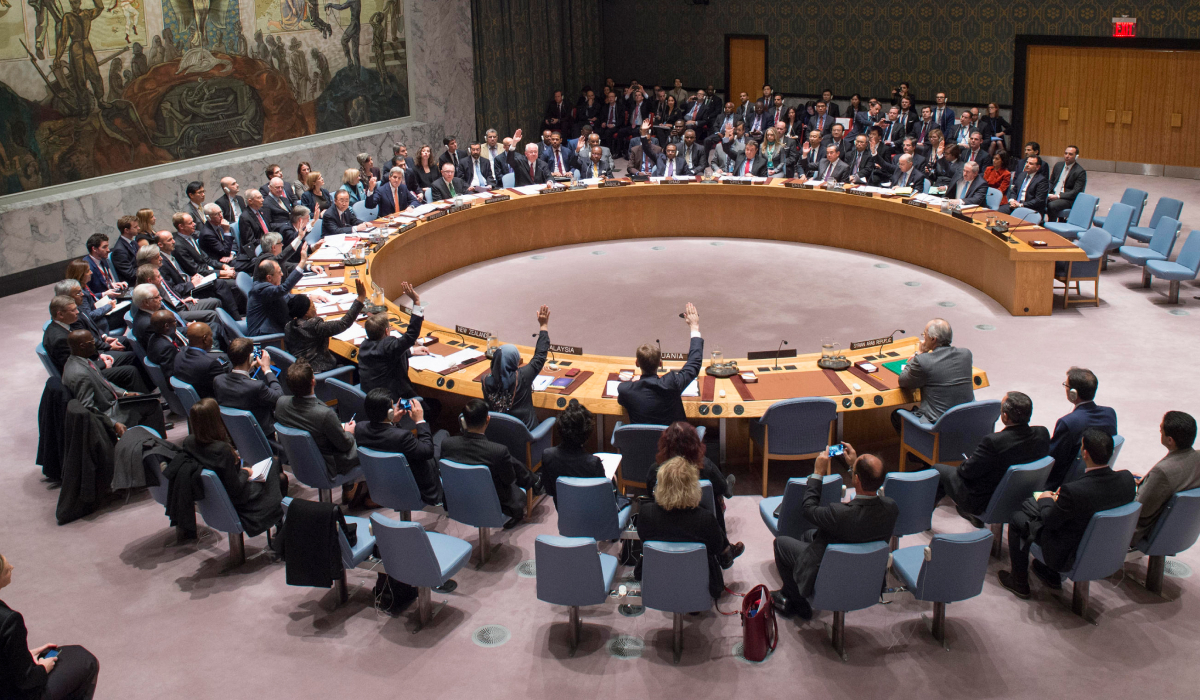When the United Nations (UN) was established in 1945, almost all African countries were still under colonial rule. Only four African states, namely Egypt, Ethiopia, Liberia and South Africa (called the Union of South Africa at the time), attended the founding conference. African countries were confronted with the fact that the UN Charter had established institutional hierarchies that favoured the great powers through permanent membership in the UNSC. During the Cold War, almost all Africa countries gained independence from colonial rule and subsequently joined the UN. The African group now has 54 members, and although Africa has three elected members out of a total of 10 non-permanent seats, it does not have a permanent seat in the UNSC.
While the UN played an important role in the decolonisation process, the permanent members of the UNSC, including some that were colonisers themselves, have only supported decolonisation when it served their own interests.
Despite African conflicts being the UNSC’s primary concern, African countries are not adequately represented in it. Over the last several decades it has become clear that the African countries on the UNSC play an important role in helping to guide the Council when it comes to managing and resolving conflicts on the continent. African countries also play an important role in coordinating between the UNSC and the African Union’s (AU) Peace and Security Council to try to ensure that there is as much coherence as possible between the AU and UN.
Over the last several decades it has become clear that the African countries on the UNSC play an important role in helping to guide the Council when it comes to managing and resolving conflicts on the continent
Tweet
African countries deserve to be permanently represented in the UNSC to contribute to ensuring international peace and security, including in Africa. The UNSC would most probably have responded differently to the genocide in Rwanda if it had a permanent member from Africa, and this raises the question about the Council’s response to future crises in Africa. Currently most of the UN’s peace operations are in Africa; including six of the 12 current peacekeeping operations.
In 2005, the AU adopted the Ezulwini Consensus, which represents the African common position on UNSC reform. The primary tenet of the African common position is that the majority of Africa was not represented when the UN was founded. Also, Africa did not have strong representation in 1963. As a result, the Ezulwini Consensus demands that Africa be given two permanent seats with all the rights and privileges of permanent membership, including the veto, as well as five non-permanent seats.
Africa’s call to reform the UNSC is highlighted in the Secretary-General’s report of 10 September 2021 titled “Our Common Agenda,” which calls for greater representation of Africa in the UNSC. All five of the permanent members of the UNSC have subsequently made statements supporting greater representation in the Council, including permanent membership. For example, United States’ President Joe Biden made a statement at the 2022 General Assembly annual summit supporting the increase in both permanent and non-permanent representatives of the Council together with permanent seats for countries in Africa.
In spite of the justifications and support, Africa’s case for increased representation in both permanent and non-permanent categories face significant political challenges. The African common position contains elements that cannot be implemented in practice. Two issues in particular stand out, namely: the veto issue and the lack of a process for selecting which African states will represent Africa on the Council.
The AU’s call for permanent membership with a veto created some international opposition, especially at a time when the veto is becoming increasingly unpopular. This means that the addition of African permanent representation on the Council must either include the veto power, or coincide with an abolition of the veto power. Article 108 of the UN Charter states that an amendment of the UN Charter requires the support of all Permanent Five (P5) members. This implies that for Africa to gain a permanent seat with a veto, or to abolish the veto, it will require the support of all the current permanent members and a two-thirds majority of UN member states in the General Assembly, and this makes amendments of the UN Charter very difficult to achieve.
The AU’s call for permanent membership with a veto created some international opposition, especially at a time when the veto is becoming increasingly unpopular
Tweet
Despite the Ezulwini Consensus, the African group has been unable, to date, to determine the criteria for selecting the two African candidates. No agreement on which of its 54 members is qualified for permanent seats has been reached, demonstrating the group’s lack of cohesion. The inability to name candidates creates a void for the P5, which prefers to assess aspirant countries individually.
For Africa’s call to gain traction, there is a need for Africa to unite behind a new common position that will make practical suggestions as to how African countries will select those states that will represent them as permanent members of the Security Council.
This piece is a truncated version of an article which was first published in the African Journal on Conflict Resolution Vol 23, No 1.
Mr Niguse Mandefero Alene is a Lecturer and PhD candidate in the Department of Political Science and International Studies at Bahir Dar University, Ethiopia. Dr Mohammed Seid Ali is an Associate Professor in the Department of Political Science and International Studies at Bahir Dar University, Ethiopia. Dr Kebede Yimam Tadesse is an Assistant Professor at the Department of Political Science and International Studies at Bahir Dar University, Ethiopia.




